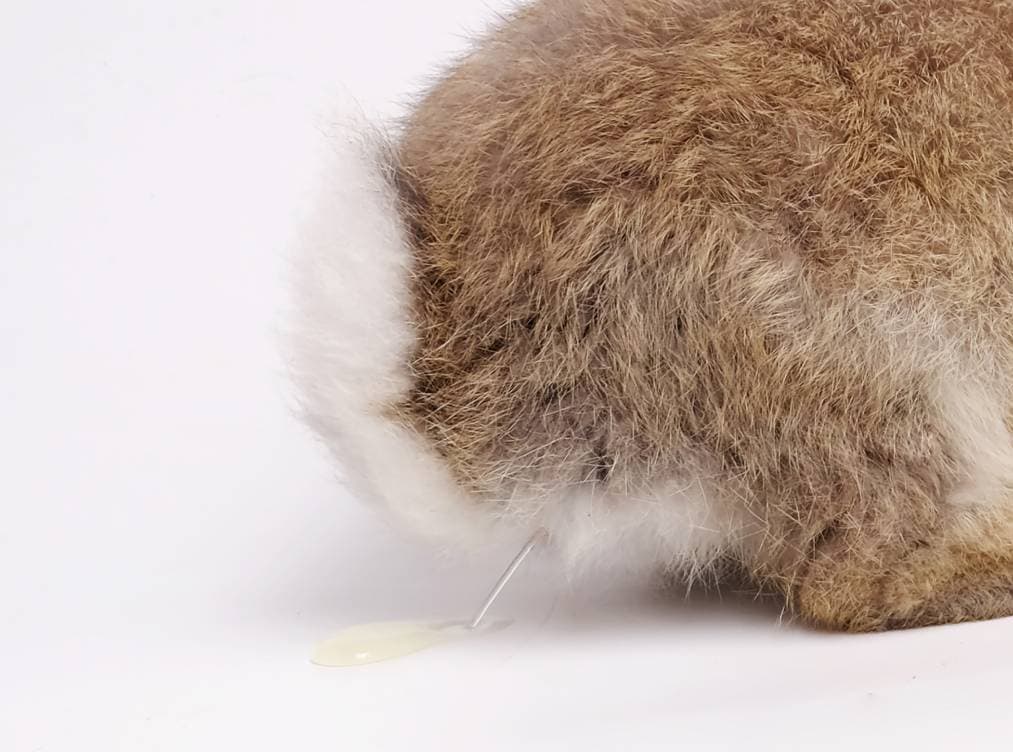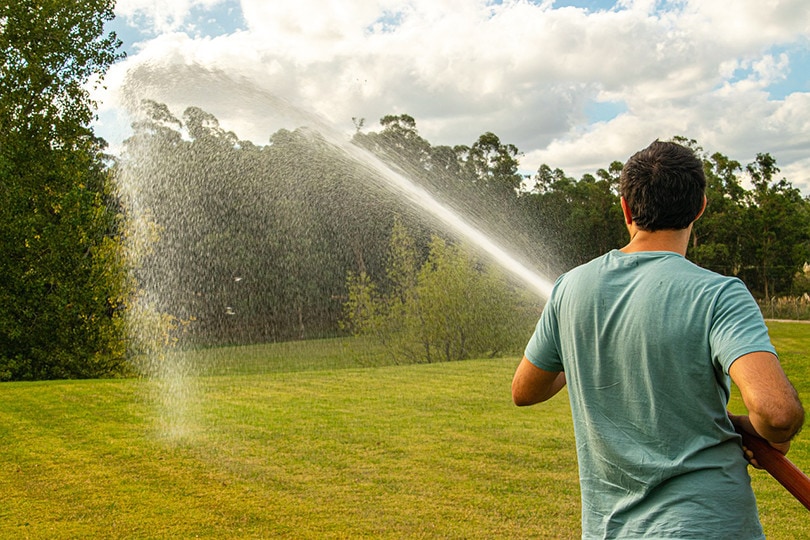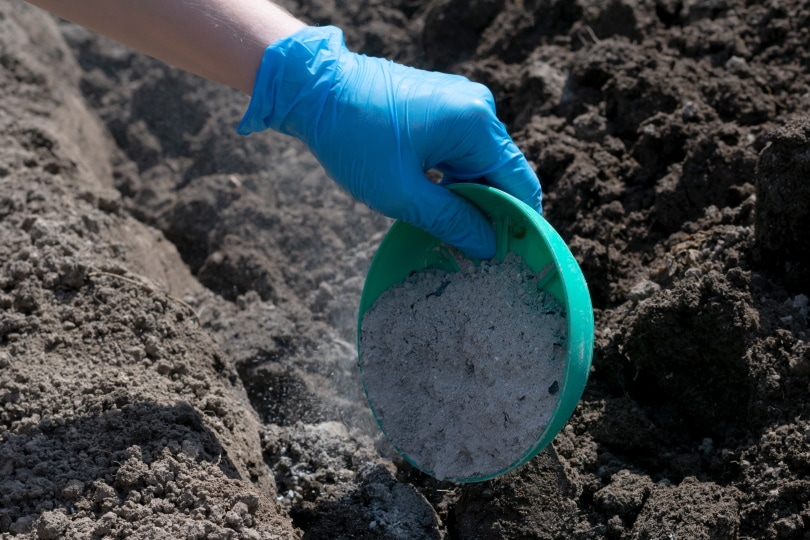How to Neutralize Rabbit Urine on Grass in 4 Steps
-
Shea Cummings
- Last updated:

Rabbits are generally thought of as cute and cuddly critters. We don’t usually connect dead grass or terrible smells with them either. Whether you have a pet rabbit you let play outside, or there are wild rabbits in your area, there may come a time when they begin to damage your lawn. It’s not overly complicated to get rid of the smell or neutralize their urine, but some care must be taken so that you don’t damage your lawn more than them.
Depending on how much these little critters visit your yard will determine how often you should take these steps. If you have a pet rabbit that you allow to play outside, a small pen to keep it contained to a particular area is helpful. Then you know exactly where to wash the grass. If it’s wild rabbits in your yard, either do the whole lawn or try and see where they are spending most of their time.
 Before you begin, you’ll need:
Before you begin, you’ll need:
Materials: Gypsum or lime, spray bottle, white vinegar, water hose
The 4 Steps to Neutralize Rabbit Urine on Grass in 4 Steps
1. Initial Spray of Area(s)
After figuring out where rabbits are urinating on your lawn, the first step to neutralizing the rabbit urine is by spraying it down with water. You’ll want to make sure you are soaking each affected area thoroughly. However, make sure not to oversoak the grass and cause pools to form, as this will cause more damage to your lawn than the rabbit urine.

2. Second Spray
Wait approximately four or five hours, then soak the affected areas again. Essentially, what you are doing is diluting and washing away any urine so it doesn’t kill your grass. After this second spray, there shouldn’t be any urine left to cause brown spots on your lawn. Keep in mind that you may have to soak the ground less than your initial spray because water pools will potentially form quicker.
3. Gypsum or Lime
Even after two washes, there will likely be salt residue left from the urine that can still cause your grass to burn or grow poorly in the area. You can help to counteract this or prevent it by sprinkling gypsum or lime in the affected areas. Either one of these will neutralize the urine residue.
In addition to the neutralizing effect, the gypsum or lime will also enhance the quality of the soil. So, if the area doesn’t have grass or the grass is brown, then reseeding it will potentially be more successful. Both products will be readily available at most garden centers.

4. Neutralize the Smell
Rabbit urine has a distinct and unpleasant smell. Hopefully, with the multiple rinses, that smell will be washed away. However, if you also have rabbits urinating in your mulched lawn areas or sidewalks, then there is a more aggressive step you can take to neutralize the smell.
Mix equal parts water and white vinegar in a spray bottle and spray the mulched areas and sidewalks. Keep in mind this will potentially damage your lawn, so it is only suitable for non-grass areas. The plus side is that it neutralizes the smell more effectively and doesn’t require as much water. Also, eliminating the smell discourages new rabbits from using the area as their bathroom.
Why is it Important to Neutralize Rabbit Urine?
Rabbit urine causes brown spots on the grass in the same way that dog urine does. This is called grass burn. Essentially, rabbit urine is very acidic and has a high concentration of nitrogen. Because rabbits typically urinate in the same place over and over, this repeated exposure on your grass causes grass burn, or “bunny burn,” as they call it in some places.
Homemade Rabbit Repellant
Sometimes, rabbits can become a nuisance and may require something to discourage them from coming around. There are commercial options available, but like many commercial products, there isn’t a focus on eco-friendly or chemical-free formulas. Some of these types of rabbit repellants can actually have ingredients that are also harmful to your other four-legged family members.
There are numerous homemade repellant recipes. Rabbits have a keen sense of smell, so once you find the right scents, it’s easy to keep them from coming around. Also, they are habitual creatures, so once you discourage a rabbit from coming around, it actually begins to stop naturally.
Cayenne pepper, tabasco sauce, water, and dish soap is one common homemade formula. Mix all the ingredients in a spray bottle, give it a shake, and let sit for a couple of days. Once it’s ready, spray it on the plants in your garden or other areas in the yard that you are trying to keep rabbits out of.
 Conclusion
Conclusion
Evidence suggests that rabbit droppings make good fertilizer for a garden. So, there is a fine line between allowing wild rabbits to enjoy your garden and lawn and keeping them from causing “bunny burn” on the grass. If you find they are more of a nuisance than a help, now you have a couple of easy steps to deal with their urine and some information to help keep them away.
You might also be interested in: 12 Hardy Plants Resistant to Dog Urine
Featured Image Credit: Katunes Pcnok, Shutterstock
Contents
 Before you begin, you’ll need:
Before you begin, you’ll need: